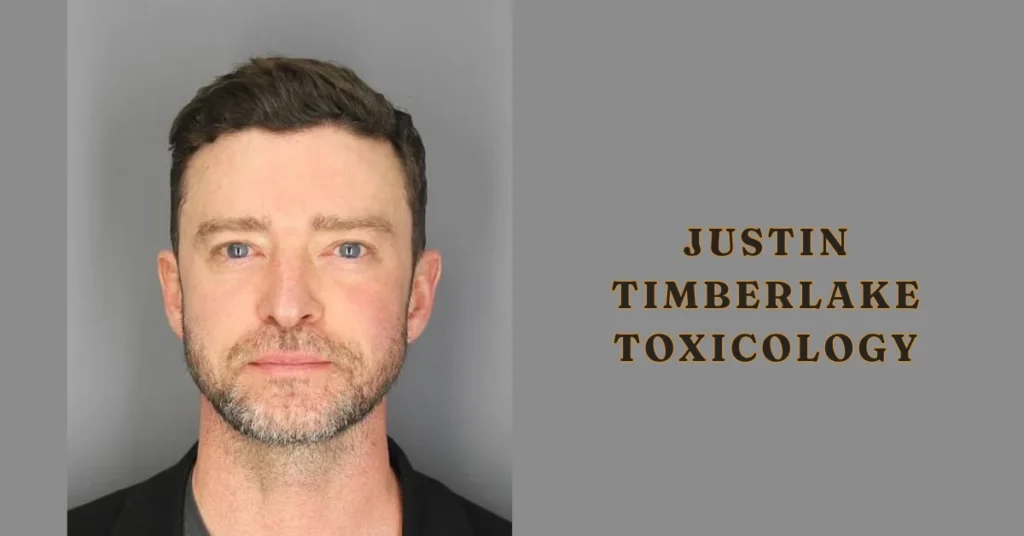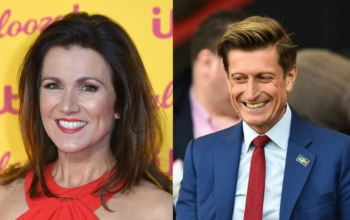
Introduction
Speculation about Justin Timberlake Toxicology has occasionally circulated through various media channels, largely triggered by moments of public scrutiny or personal turbulence. Like many high-profile celebrities, Timberlake’s fame has not come without its share of tabloid headlines and internet theories. The rumors about his toxicology results typically spike during times when Timberlake is in the spotlight for behavior that diverges from his usual public persona, whether it be a controversial performance, a legal run-in, or a change in appearance or demeanor during public events. Despite the virality of these claims, it’s important to ground the narrative in confirmed facts rather than sensational speculation.
Media’s Role in Shaping the Narrative
The media’s influence on public perception, especially in cases involving celebrity health or behavior, cannot be understated. In Justin Timberlake Toxicology case, much of the toxicology discourse has stemmed from vague reports or unverified claims, often blown out of proportion through clickbait journalism. Publications eager for traffic might take a single statement, eyewitness account, or outdated video and amplify it into a narrative that captures attention. These narratives tend to omit crucial context, such as mental health struggles, exhaustion, or personal issues that might explain unusual behavior without involving substance use. Thus, the media’s role has been pivotal in perpetuating narratives that may not reflect reality.
Timberlake’s Past and Public Behavior
To understand the context surrounding any toxicology-related rumor, one must look at Justin Timberlake Toxicology history as a public figure. From his early days in *NSYNC to his solo music career and ventures into acting, Timberlake has maintained a relatively clean public image compared to many of his contemporaries. While he has certainly faced controversies—including relationship dramas and public apologies—there has been little concrete evidence tying him to substance abuse. Any reports linking Timberlake to a toxicology screen typically revolve around speculative or anonymous sources rather than factual documentation. This consistent lack of evidence has kept the more serious allegations at bay.
Social Media Amplification and Fan Reactions
Social media platforms like Twitter, Instagram, and TikTok have made it easier for rumors to spread rapidly. A single misinterpreted video of Justin Timberlake Toxicology acting out of character can quickly morph into widespread speculation about his mental or physical state. Hashtags, memes, and viral posts can shape public opinion within hours, even if no reliable source backs the initial claim. Fan reactions have varied, with some staunchly defending Timberlake against unfounded accusations, while others fuel the fire with their theories. The polarization of fanbases often intensifies these moments, making it hard to separate fact from fiction in the whirlwind of online discourse.
Legal and Medical Privacy Protections
One of the reasons why toxicology results for celebrities like Justin Timberlake Toxicology remain unverified in the public domain is due to strict privacy laws. Medical records are protected under regulations such as HIPAA in the United States, which prevent unauthorized sharing of sensitive health information. Unless Timberlake voluntarily shares his health or toxicology results, such details remain confidential. This legal barrier means that most toxicology discussions in the public sphere are based on hearsay or leaks, which are not only ethically questionable but often inaccurate. This privacy ensures that rumors cannot escalate into formal accusations without substantiated proof.
Historical Context of Celebrity Toxicology Scandals
When looking at Justin Timberlake Toxicology situation, it helps to place it within the broader context of celebrity toxicology scandals. From Whitney Houston to Heath Ledger, there have been numerous tragic instances where toxicology reports confirmed substance-related issues. These cases, often involving sudden deaths or dramatic behavioral changes, contributed to public obsession with the private lives of celebrities. However, this history also underlines the importance of responsible journalism and sensitivity. Jumping to conclusions without facts not only harms the individual involved but also contributes to a toxic media culture that sensationalizes personal struggles.
The Importance of Mental Health Conversations
Part of the issue with toxicology rumors is their tendency to ignore broader issues like mental health. If a celebrity appears exhausted, emotional, or erratic, the default assumption often turns to drug use, rather than considering burnout, depression, or anxiety. Justin Timberlake Toxicology, like many entertainers, has faced the relentless pressure of performance, media scrutiny, and personal expectations for decades. It is entirely plausible that any perceived behavioral change could be a result of emotional fatigue rather than substance use. Reframing the conversation around mental health rather than sensational toxicology claims is essential for more compassionate and accurate discourse.
Public Statements and Reputation Management
In moments when speculation peaks, publicists and management teams often release statements aimed at protecting the artist’s image. Justin Timberlake Toxicology team has been proactive over the years in addressing controversies—issuing clarifications, denials, or apologies when needed. While no official statements regarding toxicology have been issued recently, the presence of a capable PR team ensures that if such a topic were ever valid, it would be addressed appropriately. Managing reputation in the age of instant news requires a delicate balance between transparency and privacy, something Timberlake’s team has largely maintained effectively.
Impact on Career and Projects
Despite the occasional rumor, Justin Timberlake Toxicology career has not shown signs of derailment due to toxicology concerns. He continues to release music, tour, and act in films, maintaining a strong fanbase and a steady stream of opportunities. Major brands and collaborators have continued their partnerships with him, indicating that any negative press has had limited tangible impact. In the entertainment industry, true scandals tend to have financial consequences—lost endorsements, project cancellations, or lawsuits. The absence of these in Timberlake’s case reinforces the idea that toxicology rumors remain in the realm of speculation, not substantiated risk.
The Human Cost of Celebrity Scrutiny
It’s easy to forget that celebrities are human beings, not fictional characters whose lives exist for public entertainment. Constant speculation about someone’s health, especially in areas as serious as substance use, can be deeply invasive. For Justin Timberlake Toxicology, who has a family, personal life, and a long-standing career, such scrutiny can affect not just his mental well-being but also those around him. This human cost should be a core consideration when engaging with or spreading such narratives. Compassion, respect, and restraint are necessary values when discussing anyone’s private life—celebrity or not.
Lessons from the Media’s Past Mistakes
The media has made numerous missteps in prematurely speculating about celebrity issues. From falsely reporting overdoses to misdiagnosing erratic behavior, history is filled with examples where journalists and outlets rushed to Justin Timberlake Toxicology case is another opportunity to reflect on these patterns and consider better practices. Responsible journalism, which prioritizes facts over frenzy and context over clicks, can prevent reputational damage and emotional harm. It also allows the public to engage in more thoughtful conversations rather than being swept away by unverified claims and viral speculation.
A Culture Shift Toward Empathy
Fortunately, public sentiment is beginning to shift. Movements advocating for mental health awareness and ethical media consumption are gaining traction. Many fans and commentators now challenge tabloids and gossip blogs, urging more responsible coverage of celebrity lives. This cultural shift creates space for empathy and nuance, allowing artists like Justin Timberlake Toxicology to be seen as multi-dimensional people. Rather than feeding into baseless toxicology narratives, fans and media alike are increasingly emphasizing support, understanding, and respect. This positive trend may eventually minimize the kind of harmful speculation that once defined celebrity journalism.
Navigating the Future with Caution
As Justin Timberlake Toxicology continues his artistic journey, he remains under the ever-present gaze of public attention. Navigating this spotlight requires care, especially as rumors can arise at any moment. Both fans and media professionals bear the responsibility to approach any claims—especially those as serious as toxicology results—with skepticism and care. Until and unless verified by the individual or authoritative sources, such topics should not be treated as entertainment fodder. Justin Timberlake Toxicology legacy, built over decades of artistry and hard work, deserves more than to be clouded by rumor without evidence.
Conclusion
The discussions around Justin Timberlake Toxicology, while occasionally sensationalized, are largely unfounded in any verifiable evidence. Much of the speculation arises from isolated public appearances, online rumors, and the broader culture of celebrity scrutiny. Rather than perpetuating baseless narratives, the conversation should shift toward more respectful and empathetic engagement with public figures. Timberlake’s enduring career, lack of credible allegations, and continued success speak louder than any rumor mill. As both fans and media evolve, the hope is for a culture that values truth, compassion, and the well-being of those in the spotlight.
You May Also Read: Fintechzoom.com SToxx 600


